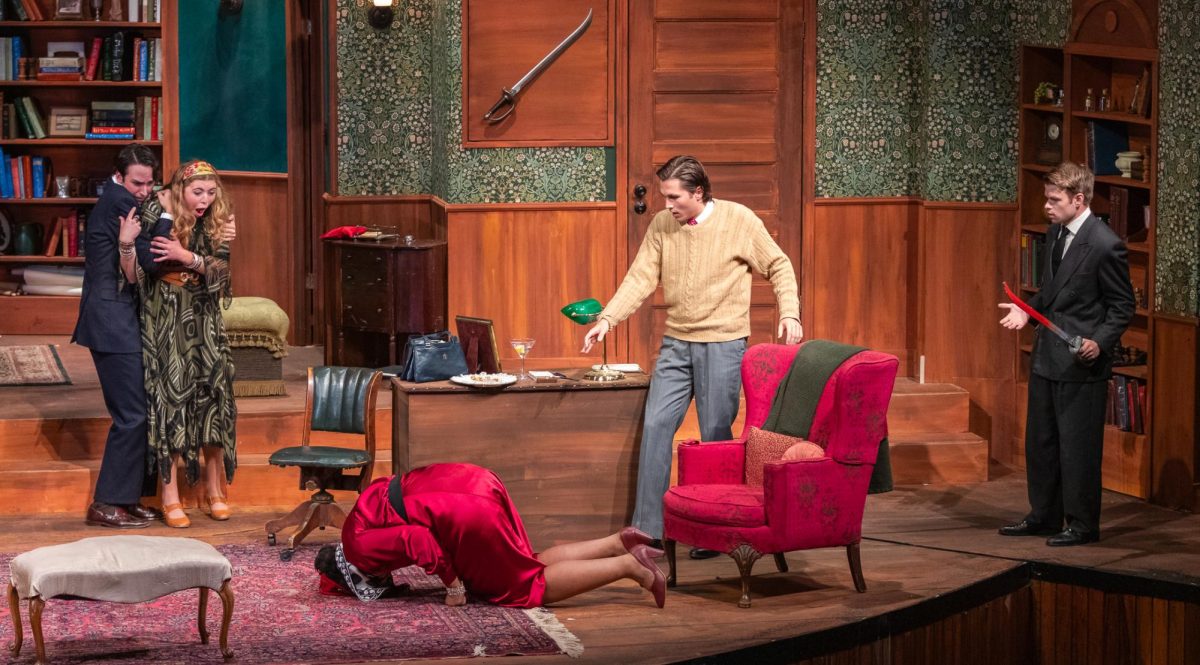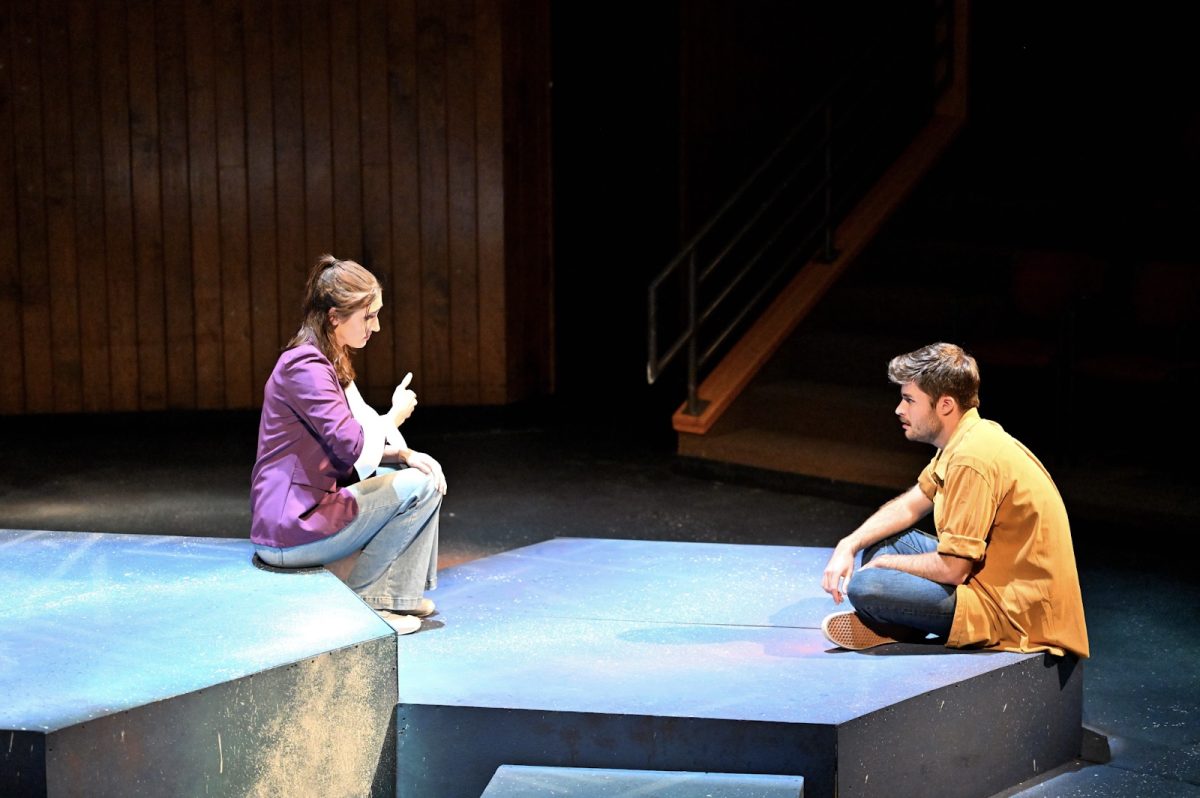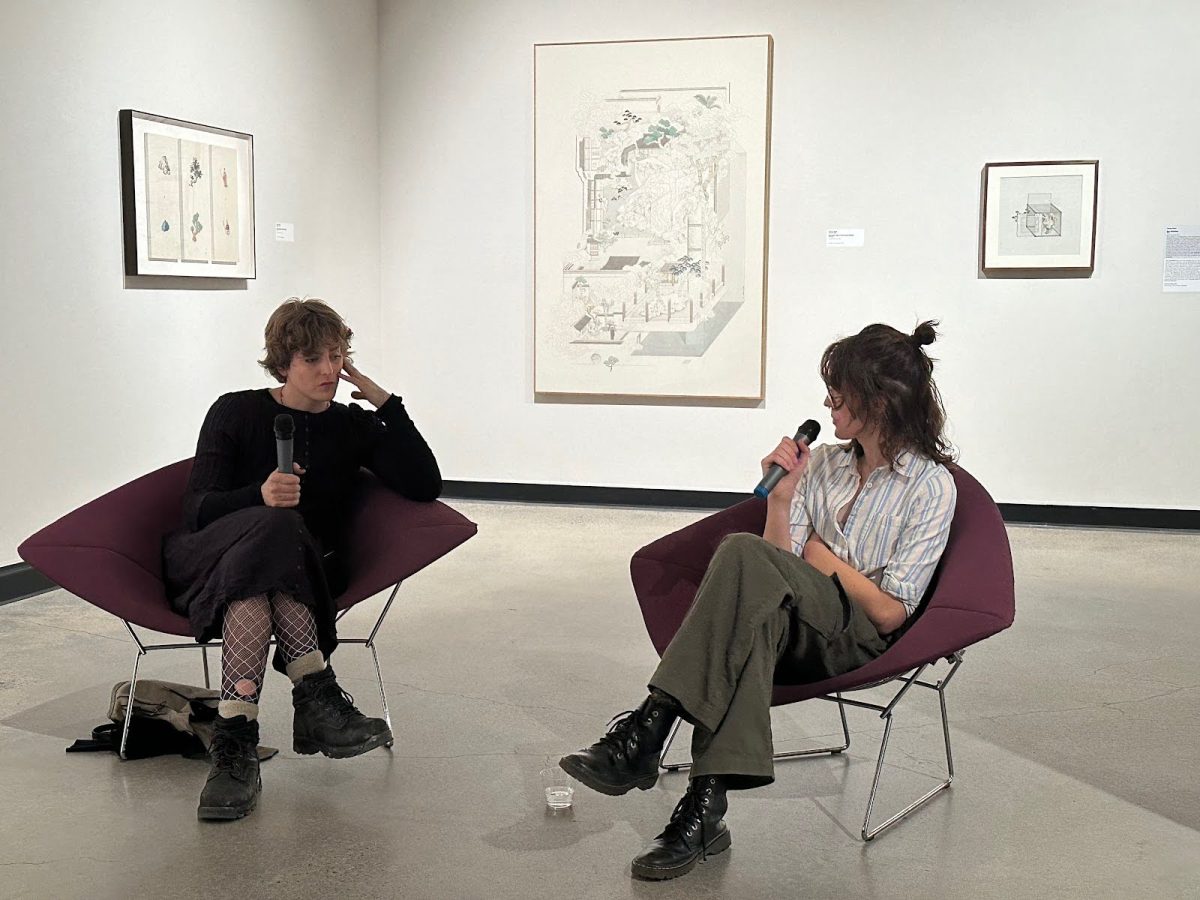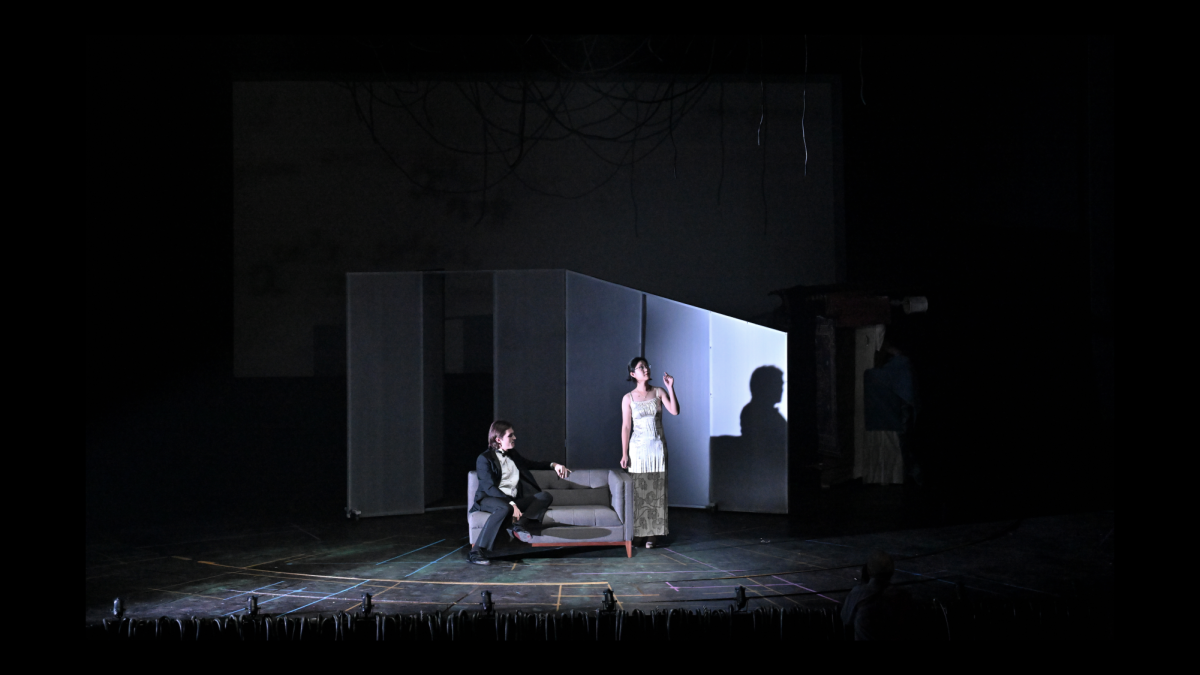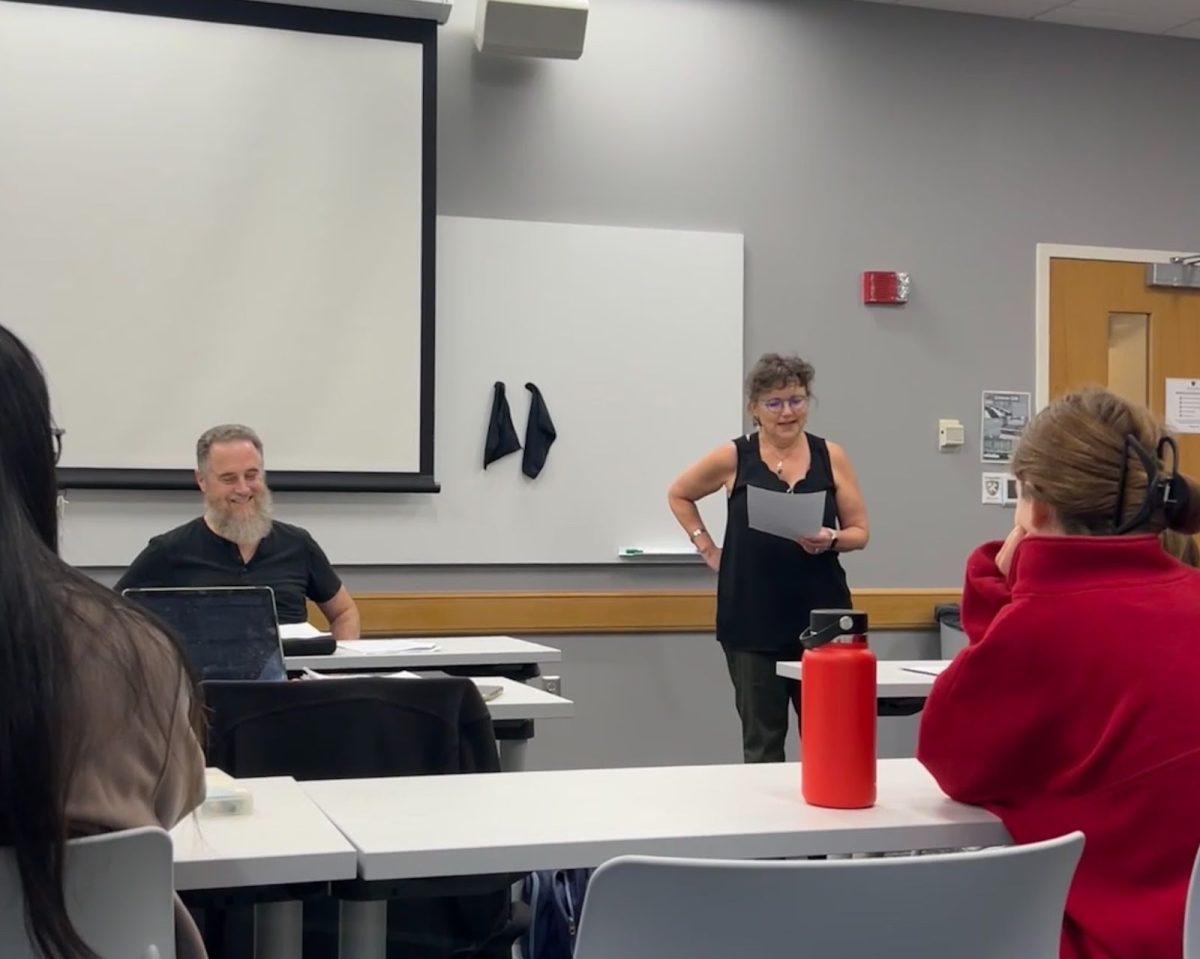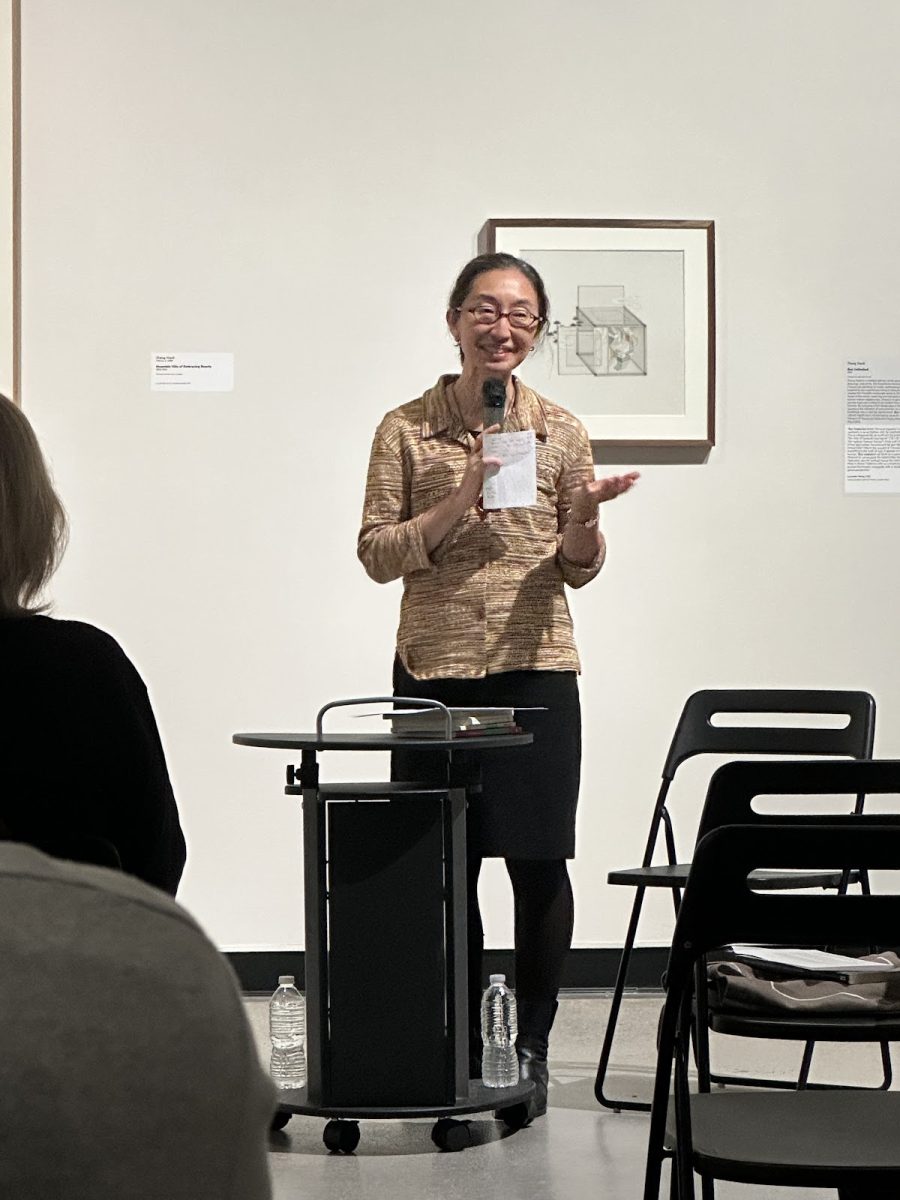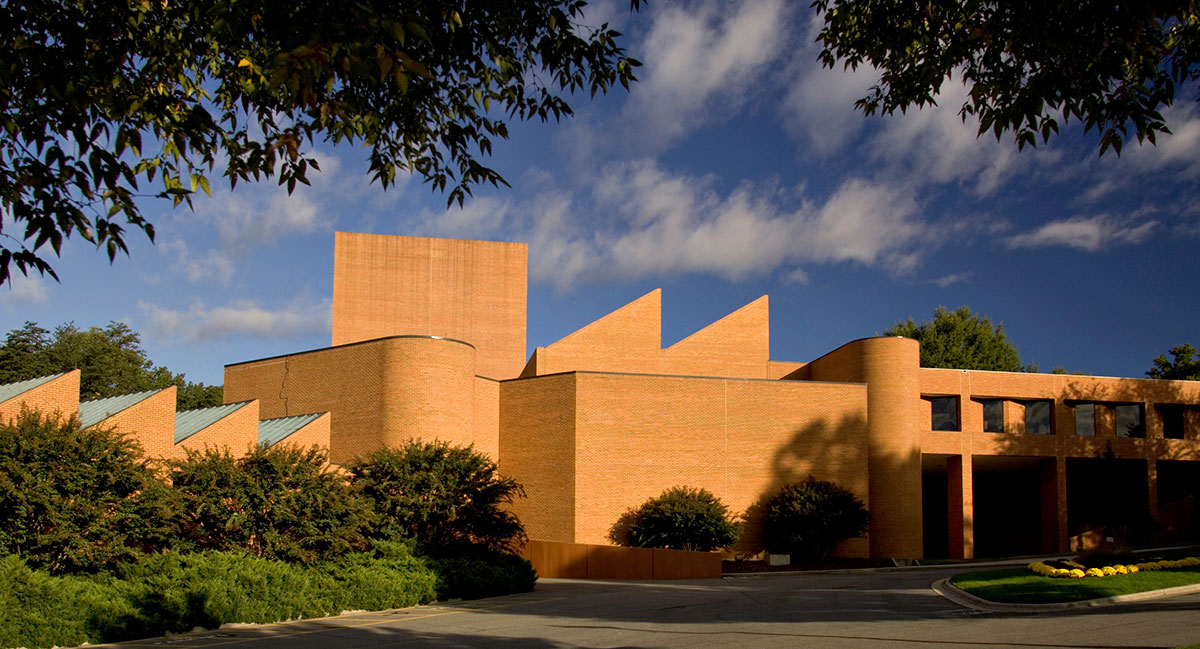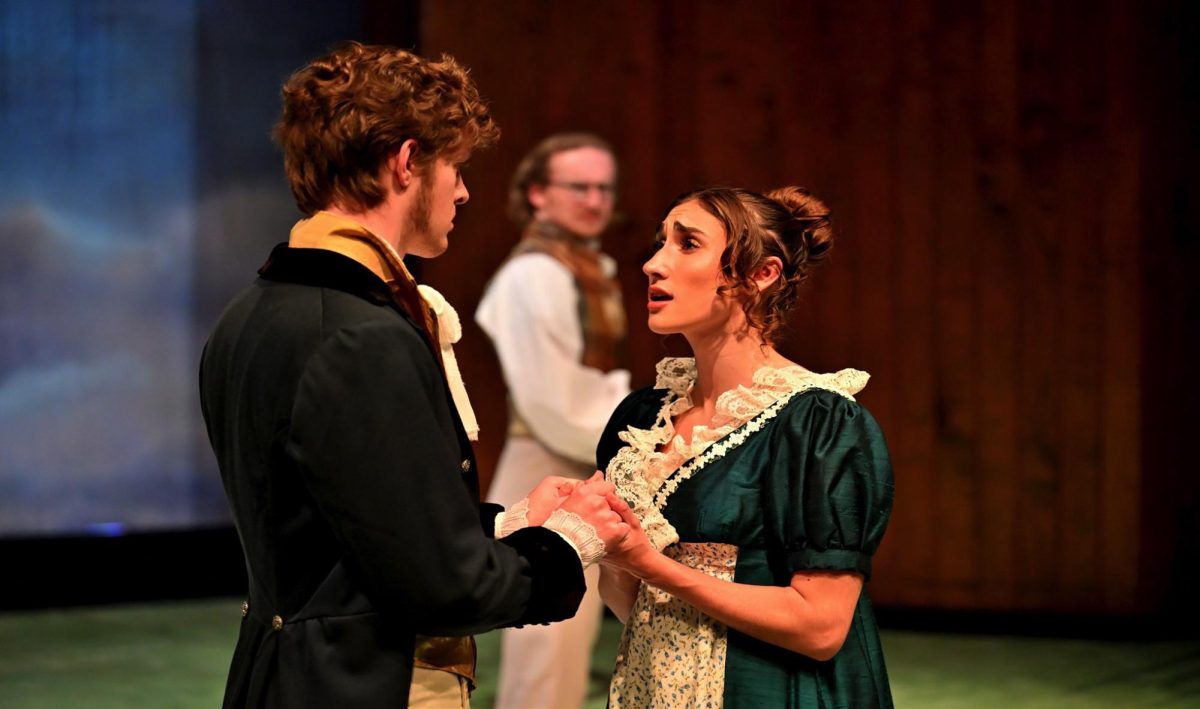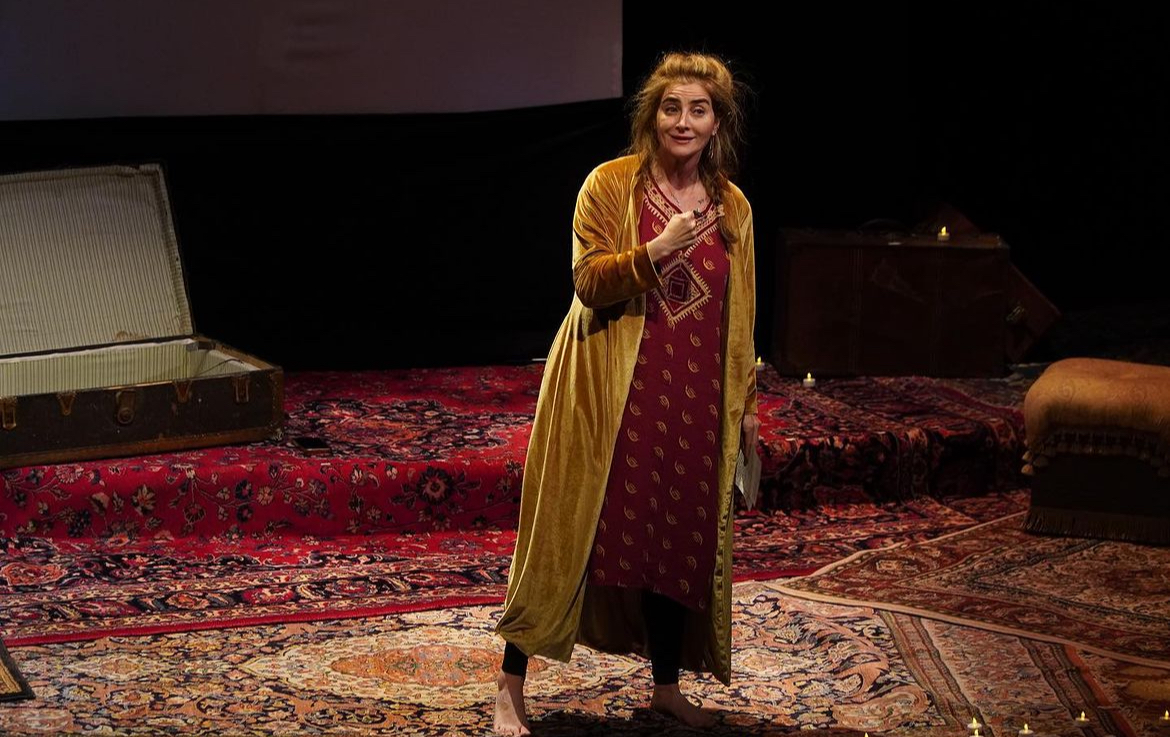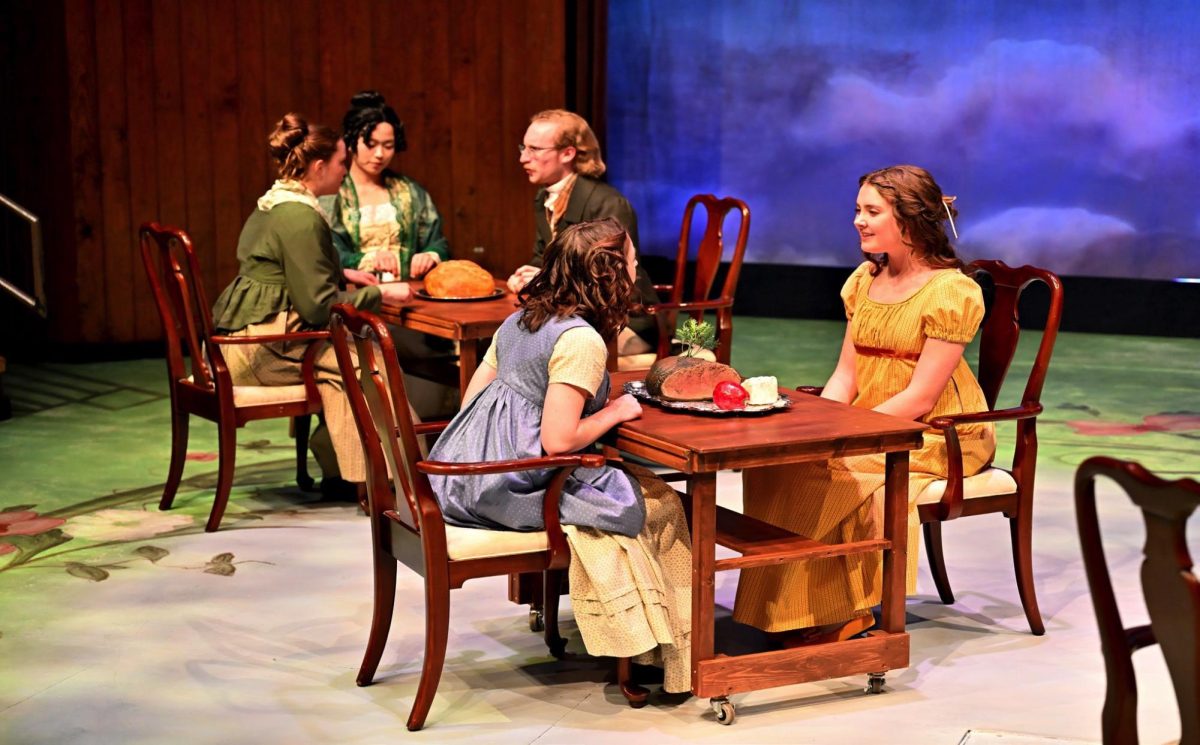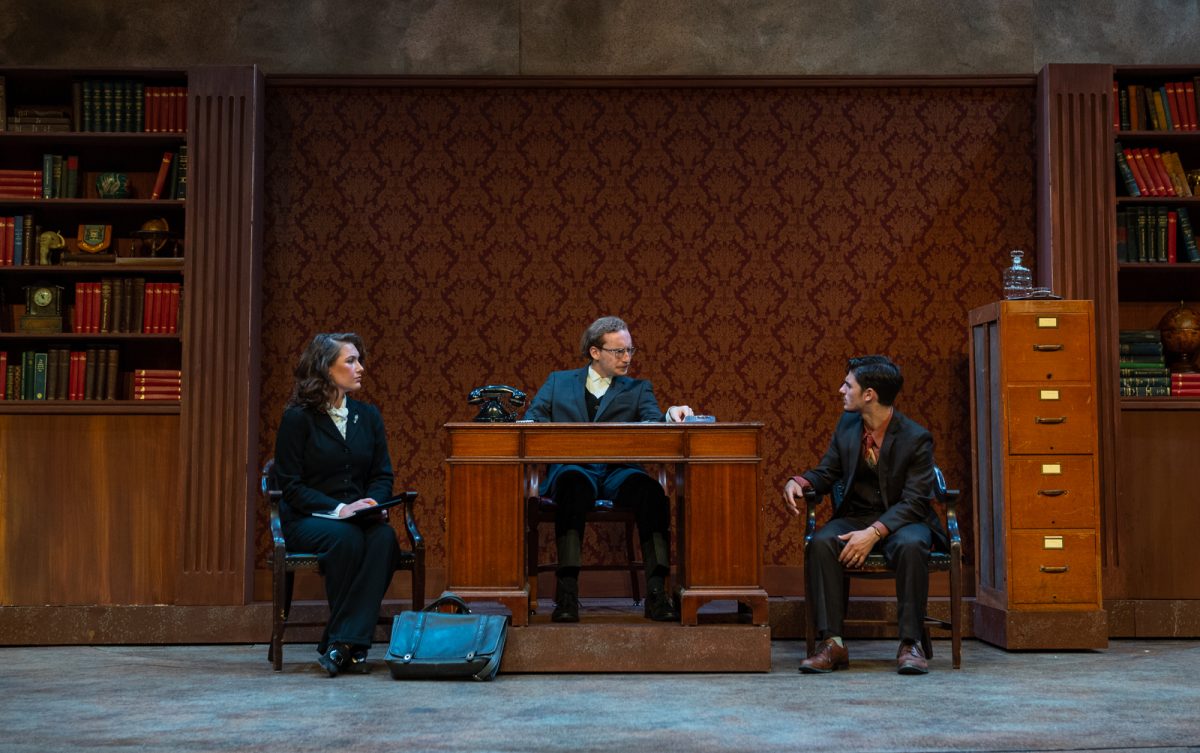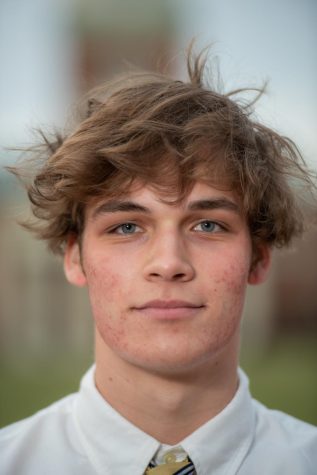The Wake Forest Theatre Department opens its Fall catalog with Cindy Genrich’s interpretation of “The Musical Comedy Murders of 1940,” a potent mix of satirical silliness and Nancy-Drew-esque mystery.
The story centers around a group of grandiose and problematic celebrities who reconvene in upstate New York to rehearse for their upcoming musical. It has been two years since the failure of their last production, “Manhattan Holiday,” which was marred by the scandal of three murdered dancers. Here in the luxurious estate of patron Elsa Von Grossenkneuten, the killer is sure to be among them. To make matters worse, there is a blizzard raging outside the mansion, cutting all communication and transportation…
Before the play even begins, mid-century croonings and a delightfully vintage parlor steep the audience in the atmosphere of wealthy, World War II America. A certain subplot concerning German espionage and transatlantic tensions sucks you in even further, while costume & hair/makeup designer Jacquelyn Loy makes sure everyone on stage looks the part. I found the costume design surprisingly pleasant and entertaining — not only does everyone look convincing, but a couple of the costumes even made me laugh out loud. Tweed and trench coats abound.
Indeed, the crew behind the scenes really shines through in this production. When the lights go out or the characters frantically scramble across the stage waving lanterns, senior Vir Gupta, lighting designer, elevates the drama and keeps it convincing. Lighting alone makes the stage feel either invitingly warm or eerily cold. On the same note, senior Sarah Cadena, sound designer, fills the space with noise that expands the world of the story, with the crackle of voices on the radio and the distant creeks of secret doors.
While the production has Whodunnit suspense in spades, its real strength is how easily every aspect of the show dips into comedy and then keeps going. Junior Casey Salzman plays the part of Eddie McCuen, a struggling (like, really struggling) comedian looking for his big break. He spends the entire play vacillating between his cowardly survival instincts and his desire to impress Nikki Crandall, an up and coming dancer played by senior Isabella Biricik, who makes the musical portions of the show come alive.
Alongside Salzman, sophomore JM Stowers plays Roger Hopewell, a defamed and licentious musician who brings heaps of wit and lively banter to the stage. Their respective entrances are worth the ticket price alone, and so much of the fun of this play is watching them fully embody the goofiest, most extreme aspects of their characters.
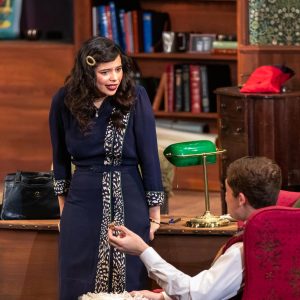
My only real critique of the play is that it tries to do too much in too little time, which is more a critique of the playwright John Bishop than the Wake Forest cast and crew. By the time the second act really gets going, there are simply too many loose threads to keep up with. In a way, there are too many loose threads to really care. With secret identities, hidden motives, encoded journals and identical twins popping up out of nowhere, at a certain point there is an overload of stimulus that makes one apathetic to the main plotline.
A partial spoof of the Whodunnit genre, I think the play does this on purpose to make sure the audience is fully leaning into the humor of the show (which I certainly did). However, I would have enjoyed the satisfaction of a big reveal at the end as well, something akin to last year’s production of “Witness for the Prosecution,” perhaps.
This is all to say that one should not show up to “The Musical Comedy Murders of 1940” looking for a suspense thriller on par with Agatha Christie or Sherlock Holmes — the play really has no interest in such precision. It certainly is entertaining to follow along as the puzzle unravels, but that puzzle is mainly a vehicle to set up punchlines and slapstick scenarios. What one should really expect from this play is a whole lot of fun, a whole lot of energy. Don’t take anything too seriously and just enjoy the show as Wake Forest talent embodies some of the distinct caricatures of twentieth-century show-biz.
I encourage everyone to come out to Tedford Stage in Scales for two hours of thrills and laughs. The play begins at 7:30 p.m. on Thursday, Friday and Saturday. Its last showing will be at 2 p.m. on Sunday, Sept. 29.


